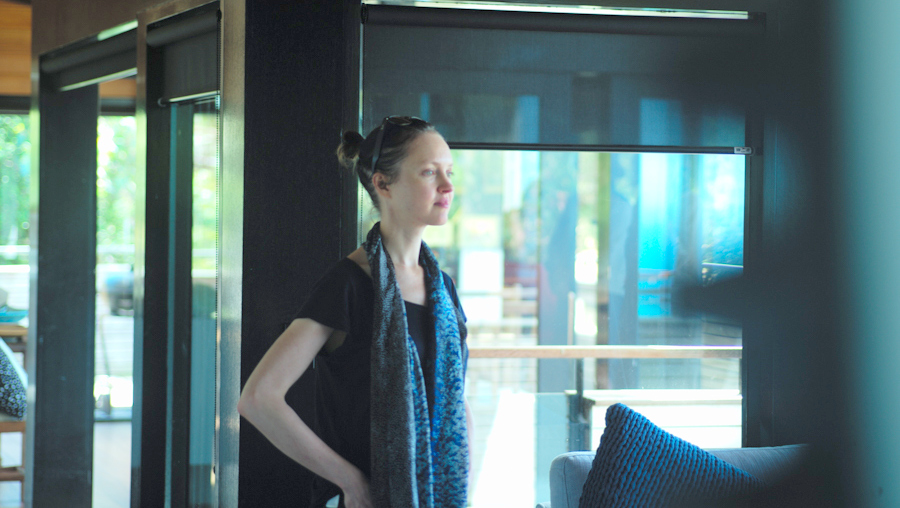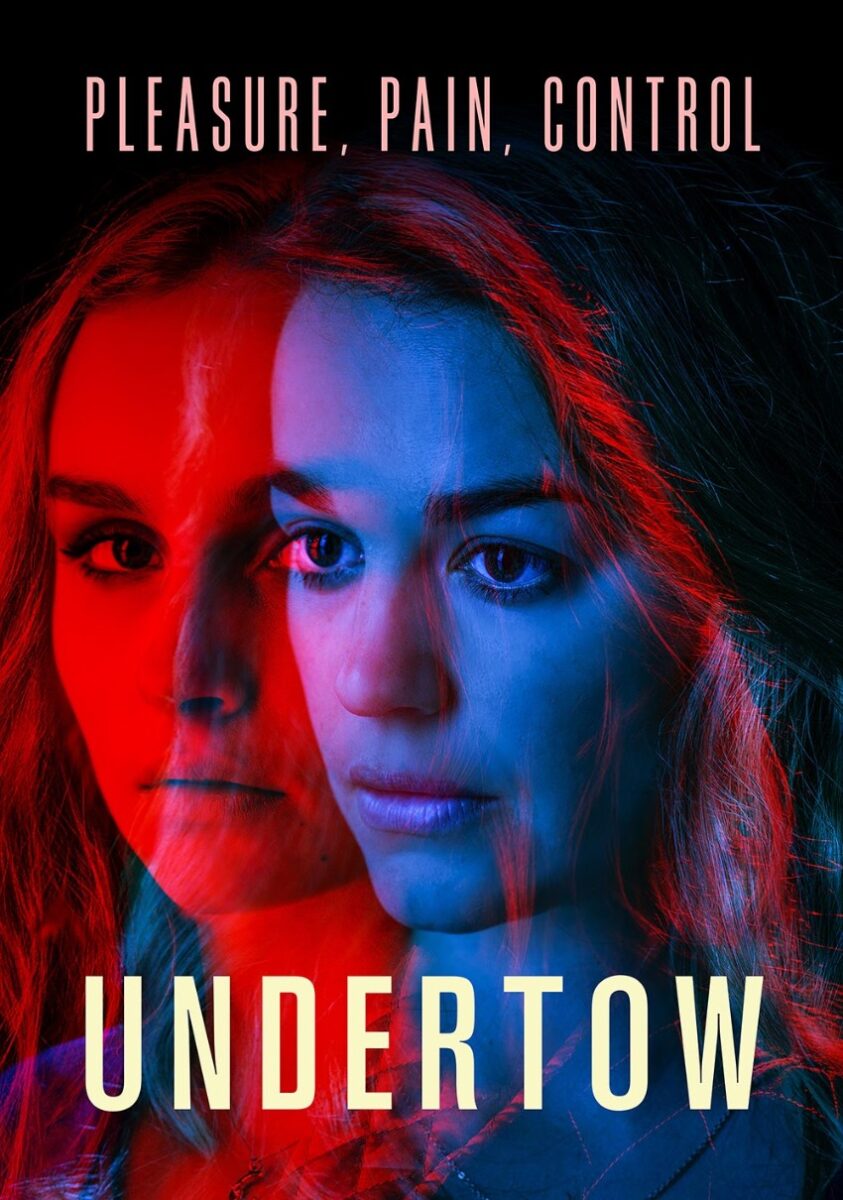
I initially trained and worked as an actor. I started writing because I was frustrated by the lack of good roles for women and soon realized I wanted to direct too. My work revolves around aspects of the female experience – identity, sexuality and consent, our relationships with our bodies and with nature.
indieactivity: As a writer and director, do you prefer one role over another and why?
Miranda Nation (MN): I love both for different reasons, they speak to different aspects of my personality and practice. Coming from an acting background, I think working with actors to create characters is one of my greatest strengths.
How do you find the process of filmmaking as an independent filmmaker?
Miranda Nation (MN): I love the relative freedom of a small crew and the spontaneity that comes with that. Most people working in independent film are there because they’re passionate about it, there’s an energy and enthusiasm that is wonderful. I’d like more resources to play with but I imagine that at any budget level, there are compromises.
Do you bring any unique points of view to the creative or filmmaking process? For example, you seem to combine a lot of social justice work with your art and filmmaking, do you feel a responsibility to create change with your work?
Miranda Nation (MN): Alongside my film studies, I also studied Community Cultural Development and this strong interest in social justice has formed a cornerstone of my practice. I have been involved in a number of projects that used film or theatre as a vehicle of expression for people whose voices had been traditionally underrepresented, and these were powerful experiences. I do think the arts can be a powerful instrument for change; I’m not interested in making ‘message films’ but it seems natural to me to explore themes and subjects that I feel passionately about and if that provokes discussion and thought then that’s great.
Watch the trailer for Undertow directed by Miranda Nation
Can you take us through the process of bringing UNDERTOW to life including developing the script, pre-production, production and post production?
Miranda Nation (MN): Undertow has been a labor of love and a huge learning curve. Back in around 2008 I acted in a production of Jean Genet’s The Maids and I was fascinated by the relationship between the sisters. I wanted to write something with an equally complex and fascinating relationship between two women.
At the same time I witnessed many of my friends struggling with fertility issues and it struck me that the relationship a woman has with her body around childbearing/childbirth etc. is something we don’t often see explored on screen and yet it is so universal and can be the source of such intense anguish and/or joy. I worked on the script on and off for many years, while making shorts and developing other projects. It was a huge learning curve. Along the way I formed great creative relationships, for example with Bonnie Elliot, our hugely talented DOP.
Why did you cast Olivia DeJonge and Laura Gordon?
Miranda Nation (MN): When I saw Laura’s self-test I was blown away. I’d been hearing the rhythms of the screenplay in my head for such a long time and Laura had somehow channeled my psyche. It was so powerful and totally unexpected. I had Olivia in mind for Angie from early on but the schedules nearly didn’t work out. Thankfully we made it work. Both Laura and Olivia brought such intelligence and honesty, and an incredible courage and commitment to their roles. They also had a great chemistry which was so important.

Did you know from the onset that you wanted to hire a predominantly female crew?
Miranda Nation (MN): It was important to us to be part of the movement to redress the gender imbalance in the industry. And there were so many talented females who we wanted to work with.
The film explores quite intense subject matters, from miscarriage, loss, grief, to obsession and assault?
MN: I’m fascinated by our subjective experience of reality and the way that our emotions color our perception from moment to moment. I admire films such as Black Swan and Don’t Look Now that use thriller and horror tropes to tell a story of psychological unravelling and obsession. Similarly, with Undertow I wanted to explore these themes in a heightened manner that really puts us inside Claire’s subjective point of view and illustrates the way that grief and jealousy can distort our perception of reality.
You use a lot of water a lot in the story, was this an intentional choice and does it represent something?
MN: Yes, absolutely intentional. Water represents for me the cycle of life, the ebb and flow, birth and death, endings and beginnings, and the interconnected nature of everything. The tension between our instinctual and intellectual selves. I’m fascinated by all this.
What do you hope audiences will take away from UNDERTOW?
MN: I hope they find it thrilling and engaging and I hope it provokes some thought and discussion around topics such as pregnancy loss, grief, sexuality and consent.
Tell us what you think of the interview with Miranda Nation. What do you think of it? What ideas did you get? Do you have any suggestions? Or did it help you? Let’s have your comments below and/or on Facebook or Twitter.
Follow Miranda Nation on Social Media
Website
IMDb
LinkedIn
MORE STORIES FOR YOU
Richard Green Documentary, ‘I Know Catherine, The Log Lady’: Premiere in NYC, LA May 9th
Lynchian Doc I Know Catherine, The Log Lady Makes Hollywood Premiere 4/17, Rollout to Follow
In Camera by Naqqash Khlalid Launch on VOD April 29
Naqqash Khlalid’s Directs Nabhan Rizwan. In Camera stars an EE BAFTA Rising Star Award Nominee.
2025 Philip K. Dick Sci-Fi Film Festival Award Winners Announced
Vanessa Ly’s Memories of the Future Awarded Best PKD Feature
Dreaming of You by Jack McCafferty Debuts VOD & DVD for April Release
Freestyle Acquires “Dreaming of You” for April 15th Release
Hello Stranger by Paul Raschid set for London Games Festival & BIFFF
The film Is set for an April 10th Premiere at The Genesis Cinema in London (LGF) and BIFFF
Daydreamers Official Trailer by Timothy Linh Bui: Released by Dark Star Pictures
Daydreamers Vietnamese Vampire Thriller – May 2nd release









